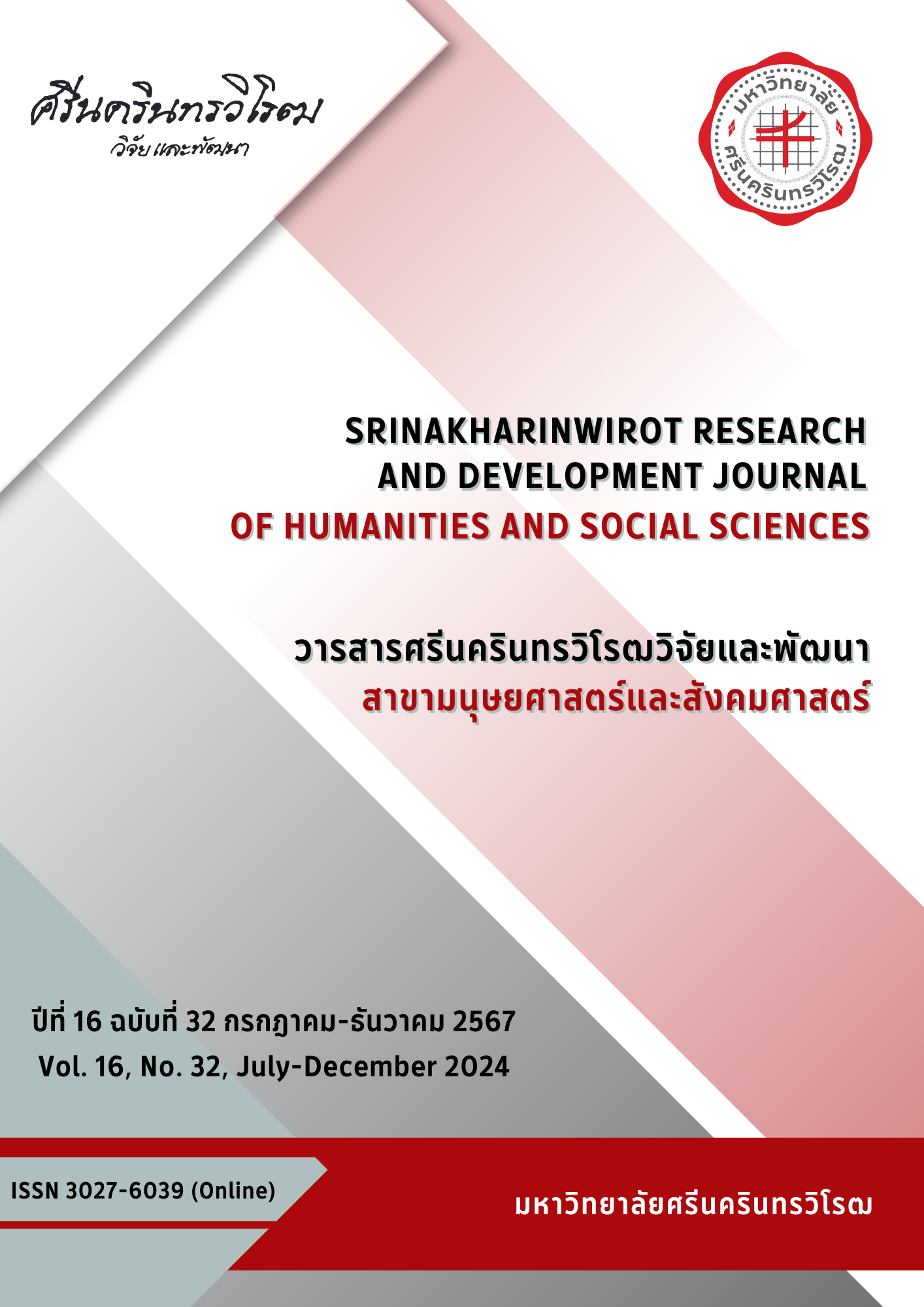THE USE OF MEMORY TRAINING APPLICATION FOR MEMORY REHABILITATION OF ELDERLY WITH DEMENTIA USING MONTESSORI-BASED ACTIVITIES
Keywords:
Dementia, Elderly, Technology, Montessori Philosophy, ApplicationAbstract
This research aimed 1) to establish a memory training application for memory rehabilitation of elderly with dementia using Montessori-based activities, 2) to investigate the memory scores before and after the trial of the mentioned memory training application for memory rehabilitation of elderly with dementia, and 3) to examine the satisfaction of elderly with dementia towards the mentioned memory training application for rehabilitating their memory. The sample group consisted of 100 elderly who were selected using purposive sampling method. They were required to have education from elementary school onwards, and be able to help themselves. Moreover, they had to be screened by implementing the Thai Mental State Examination (TMSE) and the result scores must be less than 23 points. The research instrument for treatment was the memory training application for memory rehabilitation of elderly with dementia using Montessori-based activities, whereas the research instruments for collecting data were TMSE and a satisfaction questionnaire on the use of the memory training application for memory rehabilitation of elderly with dementia using Montessori-based activities. The data were statistically analyzed for mean and standard deviation. The researchers developed an application called “Brain Booster” on the Android operating system. The findings showed that after using the memory training application for memory rehabilitation of elderly with dementia using Montessori-based activities, the memory score of the elderly with dementia was significantly higher than before the experiment at the .01 level. Moreover, the overall satisfaction of the participating elderly was at a high level, with the mean of 4.44 and the standard deviation of 0.53. In addition, it was observed that most of the elderly had fun playing the brain training games from the application. Besides, the application was designed to be easy to use and uncomplicated, so it did not cause problems in using the application for the elderly.
Downloads
References
National Statistical Office of Thailand. (2022). The number of populations categorized by age, sex, and region. http://statbbi.nso.go.th/staticreport/page/sector/en/01.aspx
Deschenes, C. L., and McCurry, S. M. (2009). Current treatments for sleep disturbances in individuals with dementia. Current Psychiatry Reports, 11(1), 20-26.
Meinke, H. (2019). Exploring the pros and cons of montessori education. https://www.rasmussen.edu/degrees/education/blog/pros_cons_montessori_education/
Nanthachai, K. (2008). The efficacy of memory training using montessori philosophy - based activities mild dementia elderly. Chulalongkorn University: Bangkok. https://doi.org/10.14457/CU.the.2008.334
Poonphat, J., and Kraisornpong, K. (2001). Montessori teaching manual: From theory to practice. Bangkok: Institute of Academic Development (IAD).
Kannasoot, K. (2008). Efficacy of activities of daily living skill training using montessori-based activities in elderly with early stage dementia [Unpublished master’s thesis]. Chulalongkorn University, Bangkok.
Train the Brain Forum Committee. (1993). Thai mental state examination (TMSE). Siriraj Hospital Gazette, 45(6), 359-374.
Kamsuwan, S., and Thongngao, K. (2022). A study of the effectiveness of the online infographic poster media of the social security office. UMT Poly Journal, 16(1), 131-135. https://so06.tci-thaijo.org/index.php/umt-poly/article/view/190165
Trithossadech, D. (2018). 2D infographic instruction media: Evolution of hip-hop culture [Unpublished master’s thesis]. Rangsit University.
Kanagawa, K., Amatsu, E., Sato, H., Hosokawa, J., Ito, M., and Matsudaira, Y. (2006). Community-based nursing care practice for the prevention of dementia in elderly residents in Japan. Primary Health Care Research and Development, 7(4), 314-317. https://doi.org/10.1017/S1463423606000429
Downloads
Published
How to Cite
Issue
Section
License
Copyright (c) 2024 Srinakharinwirot Research and Development Journal of Humanities and Social Sciences

This work is licensed under a Creative Commons Attribution-NonCommercial-NoDerivatives 4.0 International License.
Srinakharinwirot Research and Development Journal of Humanities and Social Sciences is licensed Under a Creative Commons Attribution-NonCommercial-NoDerivs 4.0 International (CC-BY-NC-ND 4.0) License, Unless Otherwise Stated. Please Read Journal Policies Page for More Information on Open Access, Copyright and Permissions.



